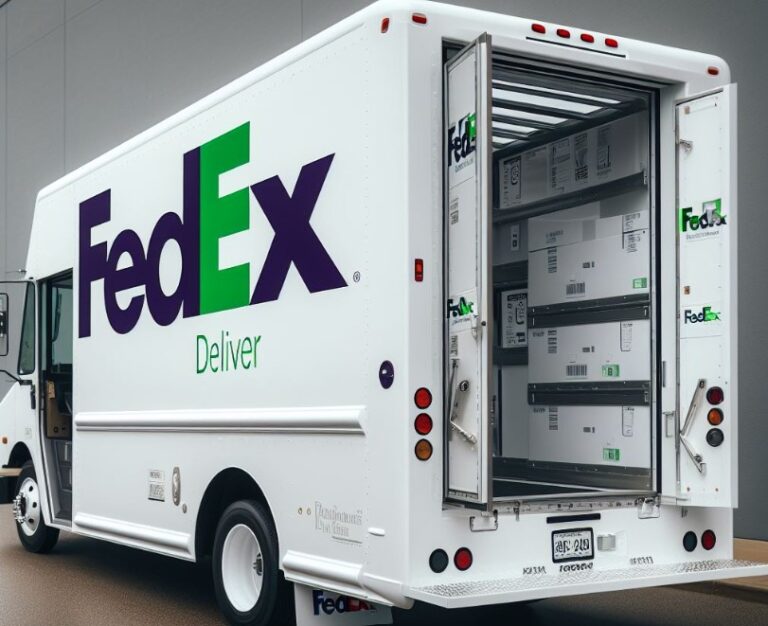Where Do Septic Tank Trucks Dump Their Waste? Answered
In this article, we’ll explain Where Do Septic Tank Trucks Dump Their Waste? This is not just a trivial question but a matter of public health and environmental safety. In the next sections, we will delve into the specifics of where these trucks go to dispose of the waste they collect.
Key Takeaways
- Septic tank trucks usually dump their waste at designated treatment facilities.
- The dumping process is regulated by local and federal laws.
- Proper disposal is crucial for environmental protection.
Where Do Septic Tank Trucks Dump Their Waste?
Septic tank trucks usually dispose of their waste at designated treatment facilities. These facilities are equipped to handle and treat the waste in an environmentally safe manner.
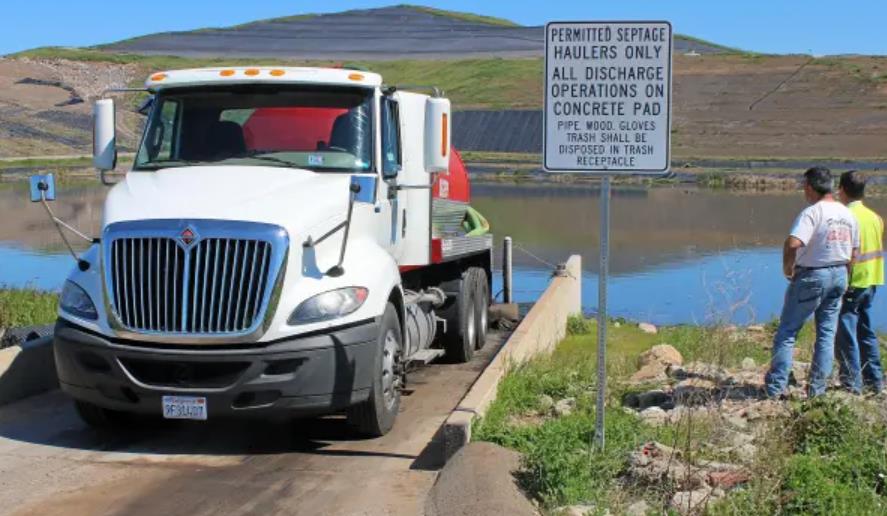
Legal Regulations Governing Waste Disposal
Federal Laws
Federal laws such as the Clean Water Act regulate the disposal of septic waste.
State Laws
State-specific regulations may also apply, depending on the location of the treatment facility.
The Dumping Process
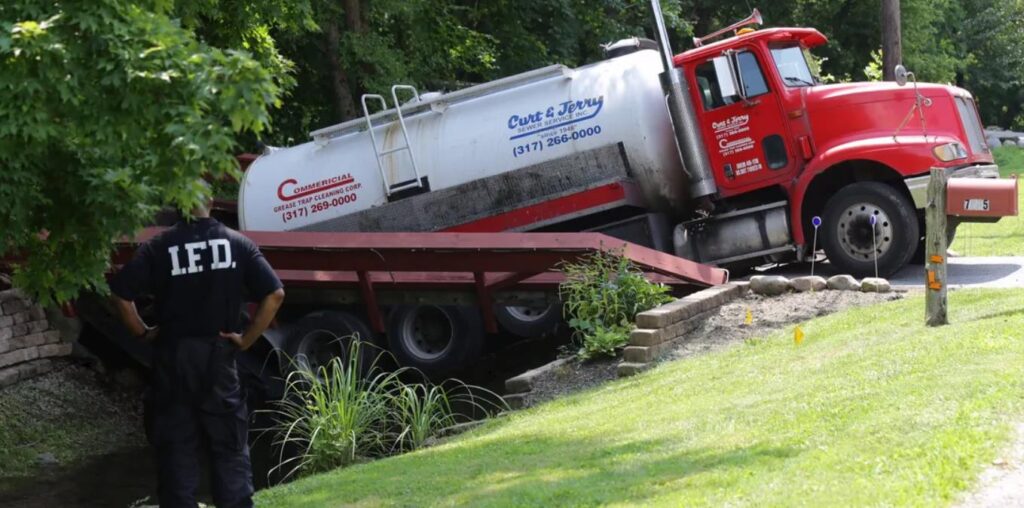
Pre-Approval and Documentation
Before a septic tank truck can dump its waste, it must receive pre-approval from the designated treatment facility. This often involves submitting documentation that details the type and volume of waste to be disposed of.
Arrival and Weighing
Upon arrival at the treatment facility, the truck is directed to a weighing station. The weight of the truck is recorded both before and after dumping to accurately measure the amount of waste disposed of.
Initial Testing
Some facilities conduct initial tests on a sample of the waste to ensure it doesn’t contain hazardous materials that the facility is not equipped to handle.
Dumping and Treatment
The truck then proceeds to the dumping area, where the waste is released into a larger containment unit. From there, the waste undergoes various treatment processes, which may include filtration, chemical treatment, and biological degradation.
Final Inspection and Documentation
After the waste has been treated, the facility conducts a final inspection to ensure all procedures are followed correctly. The truck operator receives documentation confirming the successful disposal of the waste, which they must keep as a record.
Environmental Impact of Improper Disposal
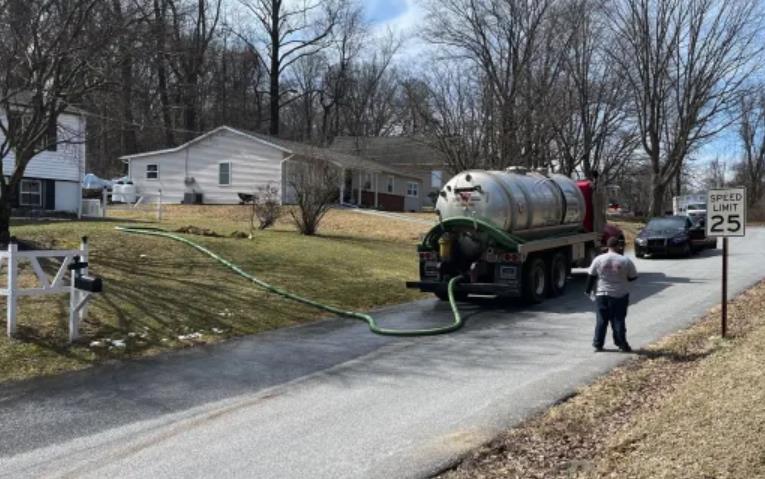
Soil Contamination
When septic waste is improperly disposed of, it can lead to soil contamination. This not only affects plant life but can also lead to the contamination of groundwater sources. Polluted soil can have long-term detrimental effects on agriculture and natural ecosystems.
Water Pollution
Improper disposal can also result in water pollution, affecting rivers, lakes, and oceans. This has a cascading effect on aquatic life, disrupting ecosystems and potentially leading to the death of fish and other marine organisms.
Contaminated water bodies also pose a risk to human health, especially if they are sources of drinking water.
Air Pollution
In some cases, the waste can emit harmful gases if not properly treated, contributing to air pollution. This can exacerbate respiratory issues in humans and animals and contribute to climate change.
Wildlife Impact
Animals that come into contact with improperly disposed waste can suffer from various diseases. This can lead to a decrease in biodiversity and disrupt local food chains.
Legal Consequences
Beyond the environmental impact, illegal dumping can result in severe legal repercussions, including hefty fines and imprisonment. This underscores the importance of following proper disposal procedures.
Importance of Proper Disposal
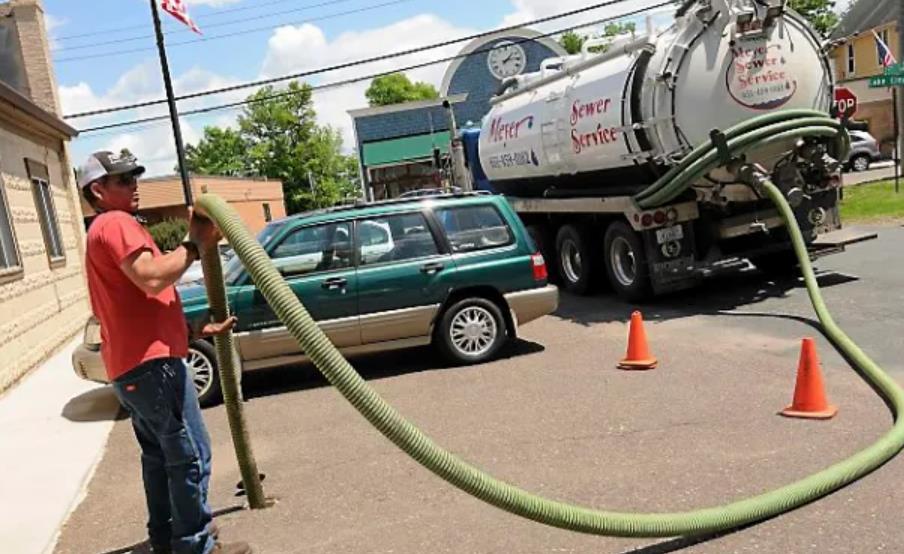
Public Health
Improper disposal of septic waste can lead to the spread of diseases. Contaminated water and soil can be a breeding ground for bacteria and parasites that cause illnesses like cholera, dysentery, and hepatitis.
Environmental Protection
Proper disposal ensures that harmful substances in the waste are neutralized or contained, preventing soil, water, and air pollution. This is essential for the well-being of ecosystems and biodiversity.
Legal Compliance
Adhering to proper disposal methods is also a legal requirement. Failure to comply can result in severe penalties, including fines and imprisonment, which can have long-term consequences for individuals and businesses.
Community Welfare
Proper waste disposal is a community responsibility. It ensures the well-being of not just the individual property owners who use septic systems, but also the broader community by preventing the spread of contaminants.
Economic Benefits
Improper disposal can lead to costly clean-up operations and healthcare expenses. On the other hand, proper disposal methods, especially those that allow for waste recycling or energy conversion, can have economic benefits.
Ethical Responsibility
Beyond legal and practical considerations, proper disposal is an ethical obligation. It’s about doing the right thing to maintain a sustainable and healthy environment for future generations.
Advanced Treatment Methods
Anaerobic Digestion
Anaerobic digestion is a biological process that uses microorganisms to break down organic matter in an environment devoid of oxygen.
This method not only treats the waste but also produces biogas that can be used as a renewable energy source.
Membrane Filtration
This method uses semi-permeable membranes to separate particles, bacteria, and viruses from the liquid waste. It’s highly effective in producing clean water that can be safely released into the environment.
Chemical Treatment
Chemical treatment involves the use of specific chemicals to neutralize harmful substances in the waste. This method is often used in combination with other treatment processes for maximum effectiveness.
Electrocoagulation
Electrocoagulation uses electrical currents to remove suspended particles from wastewater. It’s an effective method for treating industrial waste and is increasingly being used for septic waste as well.
Thermal Treatment
Thermal treatment uses high temperatures to sterilize and break down waste. This method is particularly effective for treating sludge and other solid wastes.
Ozone Treatment
Ozone is used to oxidize organic and inorganic substances in the waste. This method is highly effective but is generally more expensive than other treatment options.
Cost Factors in Waste Disposal
Transportation Costs
The distance to the treatment facility can significantly impact the cost.
Treatment Fees
Facilities usually charge based on the volume and type of waste.
Public Awareness and Education
Community Programs
Local governments often run awareness programs to educate the public about proper waste disposal.
Online Resources
Websites and apps provide valuable information and tips on waste management.
Technological Innovations in Waste Disposal
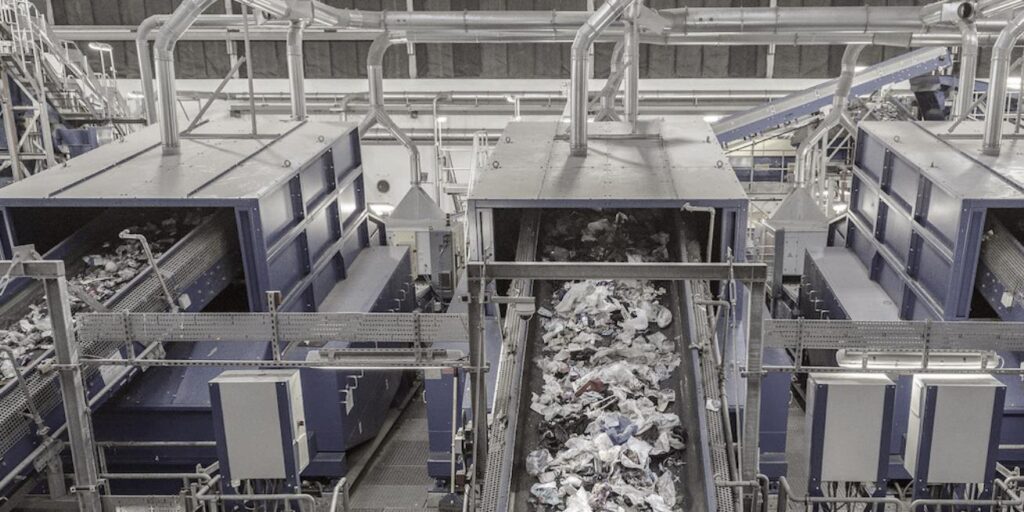
GPS Tracking
Modern septic tank trucks are equipped with GPS systems that allow for real-time tracking. This ensures that the trucks follow approved routes to designated treatment facilities, reducing the risk of illegal dumping.
Internet of Things (IoT)
IoT sensors can be installed in septic tanks to monitor levels and send alerts for timely emptying. This prevents overflows and potential environmental hazards.
Waste-to-Energy Conversion
Some advanced treatment facilities have the capability to convert waste into energy through processes like anaerobic digestion or incineration. This not only treats the waste but also generates renewable energy.
Automated Sorting and Treatment
Automation is increasingly being used in treatment facilities to sort and process waste. This reduces manual labor and increases the efficiency of the treatment process.
AI and Machine Learning
Artificial Intelligence and Machine Learning algorithms can analyze waste data to optimize treatment processes, predict maintenance needs, and improve overall efficiency.
Blockchain for Traceability
Blockchain technology can provide a secure and transparent way to track the journey of waste from its source to the treatment facility. This can help in ensuring compliance with regulations.
Virtual Reality Training
Virtual Reality (VR) can be used to train workers in the safe and effective handling of waste, without exposing them to the actual materials until they are fully prepared.
Global Practices in Septic Waste Disposal
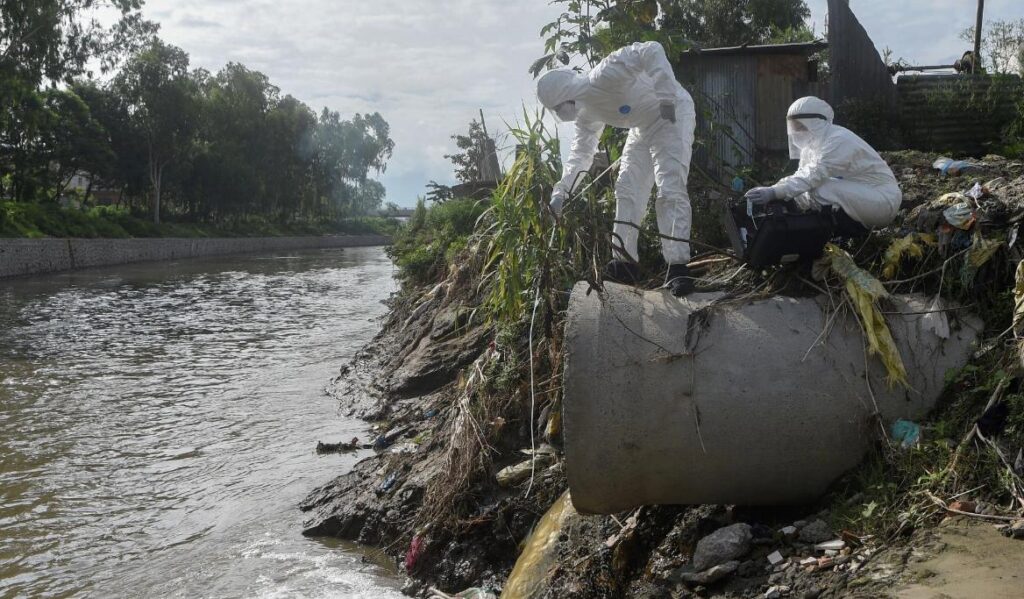
Developed Countries
European Standards
European countries often have stringent regulations and advanced treatment methods. They employ technologies like anaerobic digestion and membrane filtration to ensure waste is treated effectively.
United States
In the U.S., the Environmental Protection Agency (EPA) sets guidelines for septic waste disposal. Advanced treatment facilities and strict monitoring ensure compliance.
Developing Countries
Varied Practices
In developing countries, practices can vary widely. While some areas may have fairly advanced systems, others still rely on rudimentary methods, leading to environmental and health risks.
Challenges and Opportunities
Limited resources and lack of awareness are common challenges. However, there are also opportunities for implementing cost-effective, sustainable solutions.
Asia-Pacific Region
Japan
Japan is known for its advanced waste treatment technologies, including thermal treatment and chemical neutralization.
India
India faces challenges due to rapid urbanization but is making progress with initiatives like the “Clean India” campaign, which aims to improve sanitation and waste management.
Africa
South Africa
South Africa has made significant strides in waste management, including the adoption of waste-to-energy technologies.
Challenges in Rural Areas
Rural areas across Africa often lack proper waste disposal facilities, leading to illegal dumping and associated risks.
Future Trends in Septic Waste Management
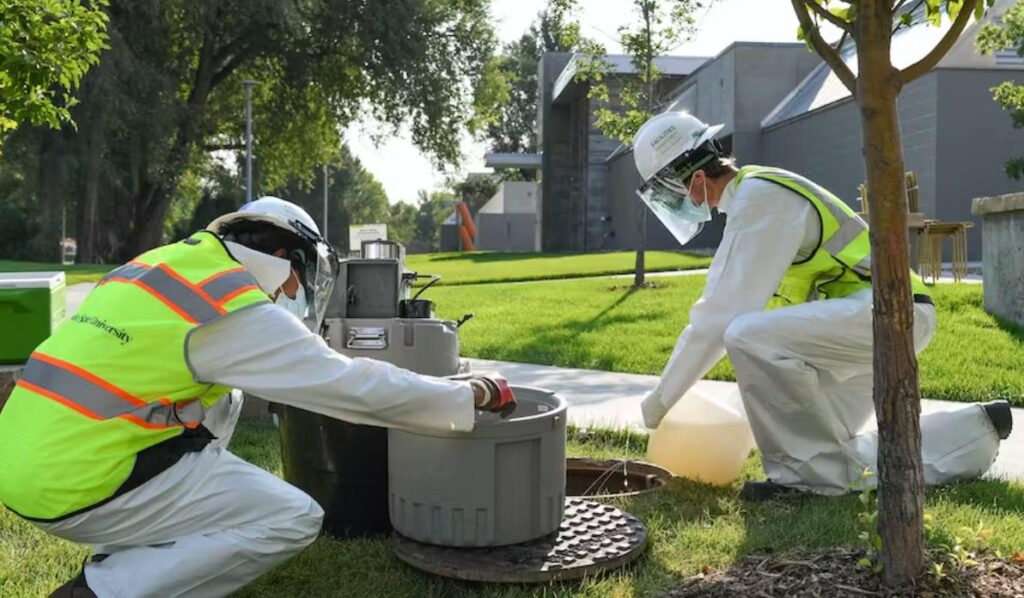
Automation and Robotics
Automation is expected to play a significant role in the future, with robots being used for tasks like sorting and treating waste. This will not only improve efficiency but also reduce human exposure to hazardous materials.
Sustainability and Circular Economy
The focus on sustainability is growing, with more efforts being made to recycle and reuse waste materials. The concept of a circular economy, where waste is minimized and resources are reused, is gaining traction.
Smart Waste Management Systems
Smart systems using IoT sensors and AI algorithms will become more common, allowing for real-time monitoring and data analysis. This will enable more effective waste management strategies.
Decentralized Treatment Facilities
There’s a growing trend towards smaller, decentralized waste treatment facilities, especially in rural areas. These can be more cost-effective and easier to manage than larger centralized systems.
Regulatory Changes
As awareness about environmental issues grows, stricter regulations are expected to be implemented. This will require waste management practices to adapt and comply with new standards.
Public-Private Partnerships
Collaborations between government bodies and private companies are likely to increase, aiming to bring in investment and technological expertise to improve waste management systems.
Community Engagement and Education
Community involvement in waste management is expected to grow, with more educational programs and awareness campaigns to inform the public about the importance of proper waste disposal.
Waste Disposal Options For Septic Tank Trucks
Septic tank trucks have several options for waste disposal, each adhering to specific regulations and guidelines. The most common options include:
- Municipal Treatment Facilities: These are government-run facilities where waste undergoes various treatment processes to neutralize harmful substances.
- Private Treatment Plants: Some areas have privately owned treatment plants that offer specialized services, often at a higher cost.
- Land Application: In some cases, treated waste can be used as a fertilizer for non-food crops, but this requires special permits.
- Waste-to-Energy Plants: Advanced facilities can convert waste into energy through processes like anaerobic digestion.
What Do Septic Pump Trucks Do With The Waste?
Septic pump trucks collect waste from residential and commercial septic tanks and transport it to designated treatment facilities. The waste is stored in a sealed tank to prevent leaks and spills.
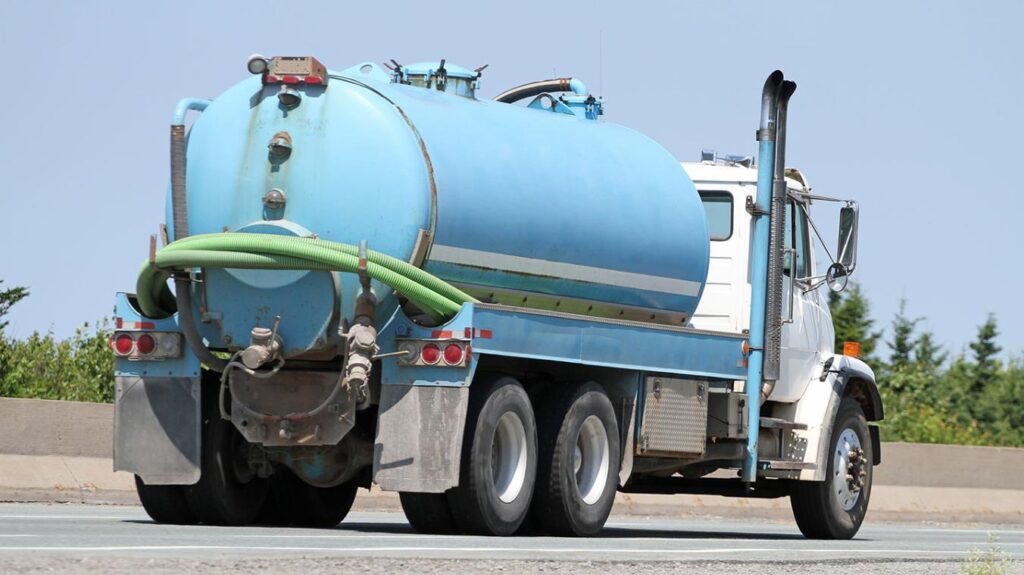
Upon reaching the treatment facility, the waste is tested and treated through various methods like filtration, chemical treatment, and biological processes.
What Happens To Waste From Septic Tank?
Once the waste from a septic tank reaches a treatment facility, it undergoes a multi-step process:
- Initial Testing: The waste is tested for hazardous materials.
- Physical Treatment: Large debris is removed through filtration.
- Chemical Treatment: Chemicals are used to neutralize harmful substances.
- Biological Treatment: Microorganisms break down organic matter.
- Final Testing: The treated waste is tested again to ensure it meets regulatory standards before being released into the environment or converted into other forms like biogas or fertilizers.
How Do Septic Tank Trucks Work?
Septic tank trucks are specialized vehicles designed for waste collection and transportation. They consist of:
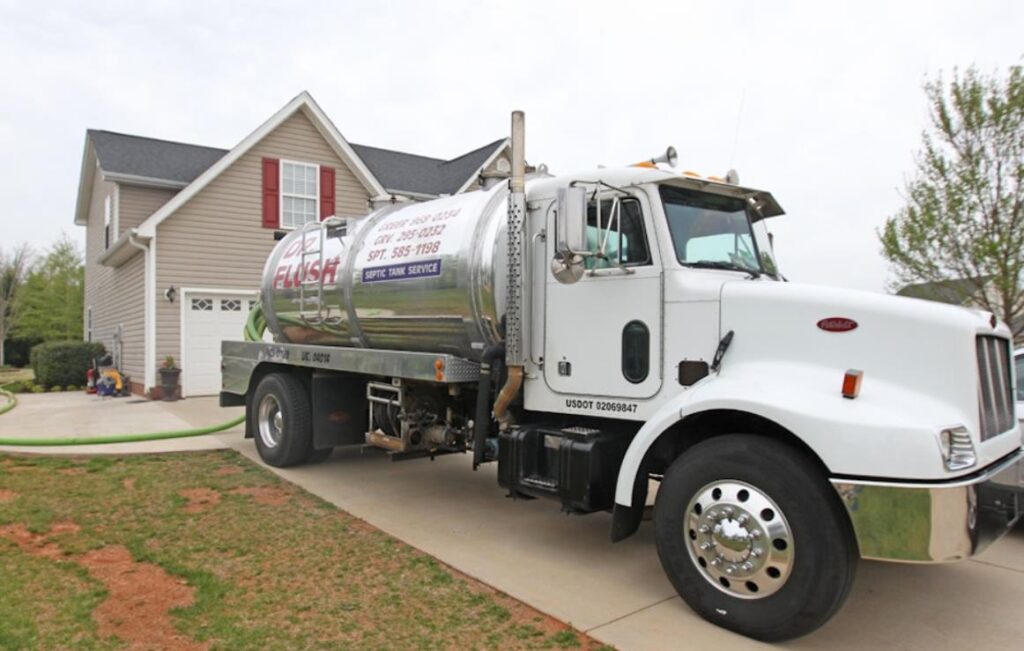
- Storage Tank: A large, sealed tank where the waste is stored.
- Pump System: A powerful pump that sucks up the waste from septic tanks into the truck’s storage tank.
- Hoses and Valves: Specialized hoses and valves are used to ensure a secure and leak-free transfer of waste.
- Control Panel: The truck has a control panel that allows the operator to manage the pumping speed, monitor tank levels, and other operational aspects.
- GPS and Monitoring Systems : Modern trucks are equipped with GPS and monitoring systems for route optimization and real-time tracking.
Where Can I Empty My Septic Truck In My Summer Car?
In the video game “My Summer Car,” you can empty your septic truck at the wastewater treatment plant located near the town. The game simulates the process of septic waste disposal, and you’ll need to follow the in-game instructions to successfully empty the truck. This feature adds a layer of realism to the game, teaching players about the importance of proper waste disposal.
Is It Possible To Never Empty A Septic Tank?
The short answer is no; it’s not advisable to never empty a septic tank. Over time, solid waste accumulates at the bottom of the tank, reducing its efficiency and increasing the risk of blockages and overflows.
Most experts recommend having your septic tank pumped every 3 to 5 years, depending on usage and size, to prevent problems.
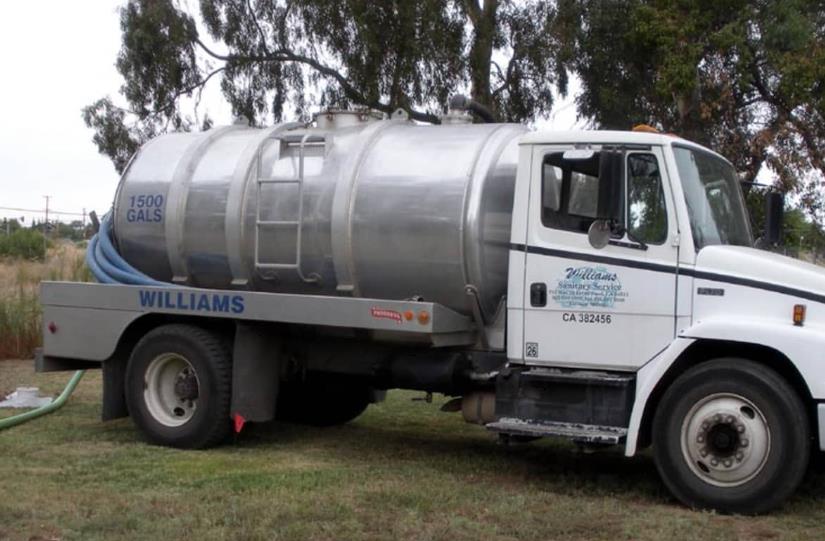
How Do I Know If My Septic Tank Needs Cleaning?
There are several signs that your septic tank may need cleaning:
- Slow Drains: If sinks and showers are draining slowly, it could be a sign of a full tank.
- Bad Odors: Foul smells around the septic tank area or inside the house can indicate it’s time for a cleaning.
- Water Pooling: Standing water near the septic tank is a red flag.
- Sewage Backup: This is a severe sign that immediate action is needed.
- Frequent Pumping: If you find you need to pump the tank more often, it may require a thorough cleaning.
How Expensive Is It To Clean A Septic Tank?
The cost of cleaning a septic tank can vary widely depending on your location, the size of the tank, and the complexity of the job. On average, you can expect to pay between $200 and $500 for a standard septic tank cleaning.
However, if there are complications like blockages or the need for additional repairs, the cost can go up significantly.
Conclusion
Understanding where septic tank trucks dump their waste is crucial for both public health and environmental conservation. Proper disposal methods are not only legally mandated but are also essential for the well-being of our planet.
People Also Ask
What Types of Waste Do Septic Trucks Carry?
Septic trucks primarily carry liquid and solid waste from residential and commercial septic systems. This includes sewage, sludge, and sometimes industrial waste.
Are There Any Special Permits Required for Septic Waste Disposal?
Yes, septic waste disposal is highly regulated, and special permits are often required. These permits ensure that the waste is disposed of in an environmentally safe manner.
How Often Do Septic Trucks Need to Empty Their Tanks?
The frequency depends on the capacity of the truck’s tank and the volume of waste it collects. Some may need to empty their tanks daily, while others might do it weekly.
Can Septic Waste Be Recycled?
Some advanced treatment facilities have the capability to recycle septic waste into biofuels or other usable materials, although this is not very common.

Welcome to the exhilarating world of Matt Rex, a professional car racer turned renowned vehicle enthusiast. Immerse yourself in his captivating blog as he shares heart-pounding adventures, expert reviews, and valuable insights on cars, trucks, jets, and more. Fuel your passion for speed and discover the beauty of vehicles through Matt’s engaging stories and meticulous expertise. Join the ever-growing community of enthusiasts who find inspiration and expert advice in Matt Rex’s blog—a digital hub where the thrill of speed meets the pursuit of knowledge.

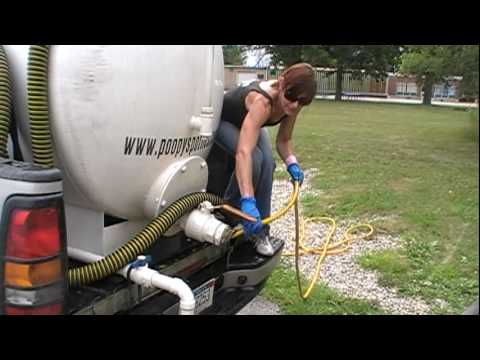

![How To Fix A Leaky Back Window On A Truck? [Explained]](https://www.turbochaos.com/wp-content/uploads/2023/12/How-To-Fix-A-Leaky-Back-Window-On-A-Truck-768x535.jpg)

